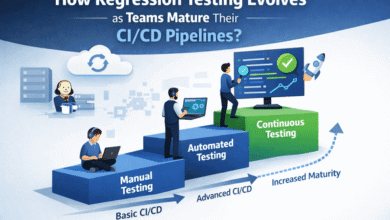Revolutionizing Urban Parking: How Smart Solutions Are Changing USA’s Cities

If you have ever driven in a busy US city, you know the struggle. You circle the block, hoping to find a free parking spot, watching the minutes tick by. It’s frustrating, stressful, and often leads to wasted fuel and time. In some areas, you might even give up and park far from your destination, only to have to walk a long distance in the heat or rain. But there’s a smarter way forward. US cities are embracing technology to make parking simpler, faster, and stress-free, and it’s changing the way we drive, work, and live.
What Is Smart Parking?
Smart parking isn’t just about finding a spot. It’s a modern system that uses sensors, apps, and real-time data to help drivers know exactly where a space is available. Some systems even let you book a spot before you arrive. Think of it as having a personal guide for your car, ready to show you the fastest, easiest way to park.
It’s more than convenience. Smart parking helps reduce traffic, lowers emissions, and provides valuable information to city planners. For everyone, drivers, businesses, and cities alike, smart parking makes urban life smoother. These systems also save drivers money by showing the most cost-effective parking options. Over time, they help cities make smarter decisions about where to create more parking or pedestrian spaces, allowing better use of urban areas.
Smart parking also improves accessibility. For elderly drivers or people with disabilities, these US cities and Airport Parking Systems can direct them to suitable parking spots quickly, making urban travel safer and more inclusive.
How Technology Makes Parking Easier
The magic behind smart parking is surprisingly simple. Sensors in parking spaces detect whether a spot is free or occupied. This information is sent to apps that show drivers exactly where they can park. Some systems also give step-by-step directions to the space, so you never have to circle the block again, wasting time and patience.
Payment is also smarter. These smart parking platforms can handle everything, so there’s no need to hunt for coins or queue at a machine. Some systems even let you extend your parking time remotely if your meeting runs late. Others allow automatic payment, so you don’t even have to think about meters or tickets. Its convenience is built into every step.
In some cities, smart parking platforms are also connected to other transport systems, allowing users to plan multi-step trips, combining parking with public transport or ride-sharing services. This creates a more connected, hassle-free experience for everyone.
Why Drivers Love It
Smart parking isn’t just tech for tech’s sake, it makes life genuinely easier for drivers.
- Save Time: No more wandering aimlessly searching for a spot. You can plan ahead and arrive relaxed.
- Reduce Stress: Know exactly where to park before you even start driving.
- Lower Costs: Compare prices and choose the most affordable or convenient option
- Drive Safely: Less circling means fewer accidents, safer streets, and less frustration.
- Better Planning: Some apps even show how busy an area is likely to be at different times, helping you decide the best time to visit.
For daily commuters, shoppers, and visitors alike, these benefits can transform the experience of driving in a city. It’s no longer just about reaching your destination, it’s about enjoying the journey.
How Cities Benefit
Smart parking isn’t just good for drivers, it helps cities function better too. Cities with smart systems see:
- Less Traffic Congestion: Cars find spots quickly instead of clogging streets. This also frees up lanes for emergency vehicles and public transport.
- Lower Pollution: Fewer cars driving around aimlessly means cleaner air and a healthier environment.
- Smarter Planning: City managers can see patterns and improve infrastructure, deciding where new parking spaces or pedestrian zones are needed.
- Efficient Revenue: Automated parking systems make fee collection simpler and more accurate, reducing costs for city councils.
- Enhanced Urban Life: By reducing street congestion and parking stress, cities become more pleasant for walking, cycling, and public activities.
Smart parking can even help cities prepare for special events. For example, during sports matches or festivals, real-time parking data ensures traffic flows smoothly and visitors don’t get stuck in long queues.
Business Benefits
Smart parking isn’t just for drivers and cities, it helps businesses too. Shops, cafes, and restaurants can attract more customers when parking is easy to find. Office buildings can manage staff parking efficiently, ensuring spaces are available when needed.
Using smart parking software in the US, businesses can make parking convenient for their customers, enhancing their experience and encouraging repeat visits. A simple parking solution can be the difference between a smooth visit and a frustrating start to the day.
Restaurants can schedule parking for delivery drivers, shopping centres can reduce overcrowding during peak hours, and offices can improve employee satisfaction—all thanks to smart parking.
Conclusion
For urban USA, the shift to smart parking is more than just convenience, it’s a smarter, cleaner, and safer way to move around the city. Drivers save time, cities reduce congestion, and businesses enjoy happier customers. If you want a solution that makes parking simple and stress-free, UbiPark Pty Ltd offers the tools and technology to lead the way. Their system is considered the smart parking software in the US that helps transform city parking experiences for everyone.




